Umandawa, also known as Umandawa Global Buddhist Village, was founded by Venerable Siri Samanthabhadra Thero, a prominent Buddhist monk known for his progressive views and dedication to promoting peace and understanding.
Table of Contents
Sri Lanka, an island nation steeped in history and culture, is home to numerous Buddhist temples that offer both spiritual solace and a glimpse into the island’s rich heritage. Among these revered sites, Umandawa stands out as a unique and vibrant Buddhist temple that has become an attractive tourist destination. This article delves into the history of Umandawa, its founder, cultural significance, traditional practices, and other captivating aspects that make it a must-visit spot for those seeking spiritual and cultural enrichment.
History of Umandawa
The Founding of Umandawa
Umandawa, also known as Umandawa Global Buddhist Village, was founded by Venerable Siri Samanthabhadra Thero, a prominent Buddhist monk known for his progressive views and dedication to promoting peace and understanding. Established in the early 21st century, Umandawa was envisioned as a modern sanctuary for those seeking spiritual growth and enlightenment. Venerable Siri Samanthabhadra Thero’s vision was to create a space where traditional Buddhist teachings could be harmoniously blended with contemporary practices, making the ancient wisdom of Buddhism accessible to people from all walks of life.
The Development of the Temple
Since its inception, Umandawa has undergone significant development, transforming into a serene and expansive complex that attracts visitors from around the globe. The temple grounds are meticulously maintained, featuring beautifully landscaped gardens, tranquil ponds, and striking architectural structures. The development of Umandawa was guided by the principles of sustainable living and environmental consciousness, reflecting the founder’s commitment to creating a harmonious balance between human existence and nature.
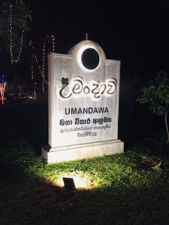

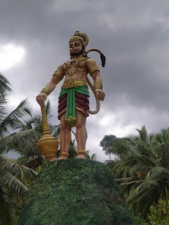
Cultural Significance of Umandawa
A Modern Interpretation of Buddhism
One of the most notable aspects of Umandawa is its modern interpretation of Buddhism. While rooted in traditional Buddhist teachings, the temple embraces a contemporary approach to spirituality, addressing the needs and challenges of today’s world. This modern perspective has made Umandawa particularly appealing to younger generations and international visitors who are interested in exploring Buddhism in a context that resonates with their everyday lives.
Promoting Peace and Unity
Umandawa serves as a beacon of peace and unity, fostering an environment where individuals from diverse backgrounds can come together to practice mindfulness and compassion. The temple’s inclusive philosophy is reflected in its various programs and activities, which are designed to promote understanding, tolerance, and harmony among people of different faiths and cultures. This focus on inclusivity and global harmony is a testament to the temple’s cultural significance in promoting peace in a rapidly changing world.
Traditional Practices and Activities
Meditation and Mindfulness
At the heart of Umandawa’s spiritual offerings is its emphasis on meditation and mindfulness. Visitors to the temple can participate in guided meditation sessions led by experienced monks, providing an opportunity to cultivate inner peace and clarity. These sessions are suitable for both beginners and seasoned practitioners, making Umandawa an ideal destination for anyone looking to deepen their meditation practice.
Dhamma Talks and Teachings
Umandawa regularly hosts Dhamma talks and teachings, where Venerable Siri Samanthabhadra Thero and other esteemed monks share insights on various aspects of Buddhist philosophy and practice. These talks cover a wide range of topics, from the fundamental principles of Buddhism to practical advice on how to incorporate mindfulness into daily life. The teachings are delivered in a manner that is both engaging and accessible, ensuring that visitors can gain a deeper understanding of Buddhist wisdom.
Traditional Ceremonies and Rituals
The temple also conducts traditional Buddhist ceremonies and rituals, providing visitors with an opportunity to participate in or observe these sacred practices. One of the most significant ceremonies held at Umandawa is the Vesak festival, which commemorates the birth, enlightenment, and passing away of the Buddha. The temple is beautifully decorated with lanterns and flowers during this festival, creating a festive and reverent atmosphere that attracts both local and international visitors.
Other Interesting Aspects of Umandawa
The Temple Architecture
Umandawa’s architecture is a harmonious blend of traditional and modern design elements, reflecting the temple’s philosophy of integrating ancient wisdom with contemporary practices. The main shrine hall, with its elegant simplicity and serene ambiance, serves as the focal point of the temple complex. The hall is adorned with intricate carvings and statues that depict various scenes from the Buddha’s life, providing a visual narrative of his journey to enlightenment.
Eco-Friendly Initiatives
Sustainability is a core principle at Umandawa, and the temple has implemented several eco-friendly initiatives to minimize its environmental footprint. These initiatives include the use of solar power, rainwater harvesting, and organic farming. The temple’s gardens are cultivated using sustainable practices, and visitors are encouraged to participate in activities that promote environmental awareness and conservation.
Educational Programs and Workshops
In addition to its spiritual offerings, Umandawa also provides a range of educational programs and workshops designed to enhance visitors’ understanding of Buddhism and holistic living. These programs cover topics such as mindfulness, yoga, sustainable living, and traditional arts and crafts. The workshops are conducted by skilled instructors and offer a hands-on learning experience that is both informative and enjoyable.
Relevance to Buddhism
A Sanctuary for Spiritual Growth
Umandawa serves as a sanctuary for spiritual growth and self-discovery, offering a supportive environment for individuals to explore their inner selves and connect with their spiritual path. The temple’s serene surroundings and comprehensive programs provide a conducive setting for deep reflection and contemplation, making it an ideal retreat for those seeking to deepen their understanding of Buddhism.
Preserving Buddhist Heritage
While embracing modernity, Umandawa remains committed to preserving the rich heritage of Buddhism. The temple’s practices and teachings are deeply rooted in the ancient traditions of Theravada Buddhism, ensuring that the essence of the Buddha’s teachings is preserved and passed down to future generations. This commitment to preserving Buddhist heritage is evident in the temple’s meticulous attention to detail in its ceremonies, rituals, and educational programs.
Encouraging Global Tourism
A Destination for Spiritual Tourism
Umandawa has emerged as a premier destination for spiritual tourism, attracting visitors from all corners of the globe. The temple’s unique blend of traditional and modern practices, coupled with its inclusive and welcoming atmosphere, makes it a compelling choice for those seeking a spiritual retreat. Tourists are drawn to Umandawa not only for its spiritual offerings but also for its cultural and educational programs, which provide a holistic and enriching experience.
Promoting Sri Lanka’s Heritage
By attracting international tourists, Umandawa plays a vital role in promoting Sri Lanka’s cultural and spiritual heritage on a global stage. The temple’s emphasis on sustainable tourism and environmental conservation aligns with the broader goals of responsible tourism, ensuring that visitors can enjoy and appreciate Sri Lanka’s natural beauty and cultural richness while minimizing their impact on the environment.
Conclusion
Umandawa is more than just a Buddhist temple; it is a vibrant and dynamic sanctuary that embodies the timeless wisdom of Buddhism while embracing the challenges and opportunities of the modern world. With its rich history, cultural significance, and diverse offerings, Umandawa provides a unique and enriching experience for visitors seeking spiritual growth and cultural immersion. As a beacon of peace and unity, the temple continues to inspire and uplift individuals from all walks of life, making it a must-visit destination for anyone exploring the spiritual and cultural treasures of Sri Lanka.
For those planning a trip to Sri Lanka, a visit to Umandawa promises to be a transformative journey that offers profound insights into the Buddhist way of life and the timeless beauty of this enchanting island nation.


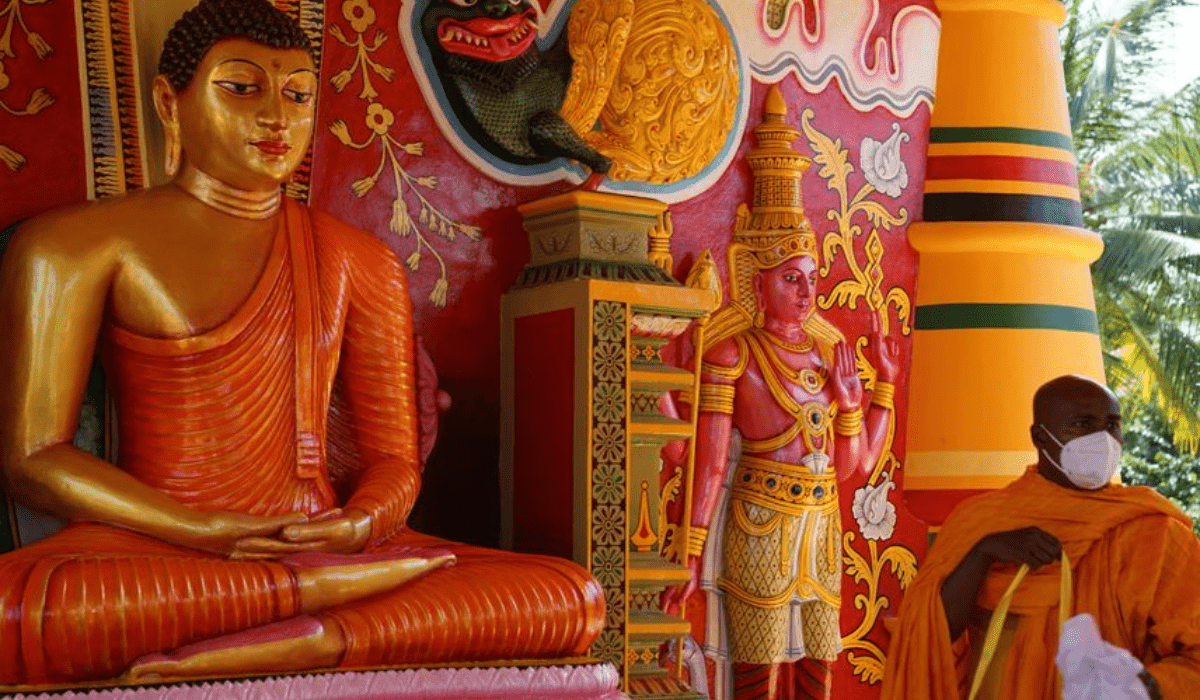
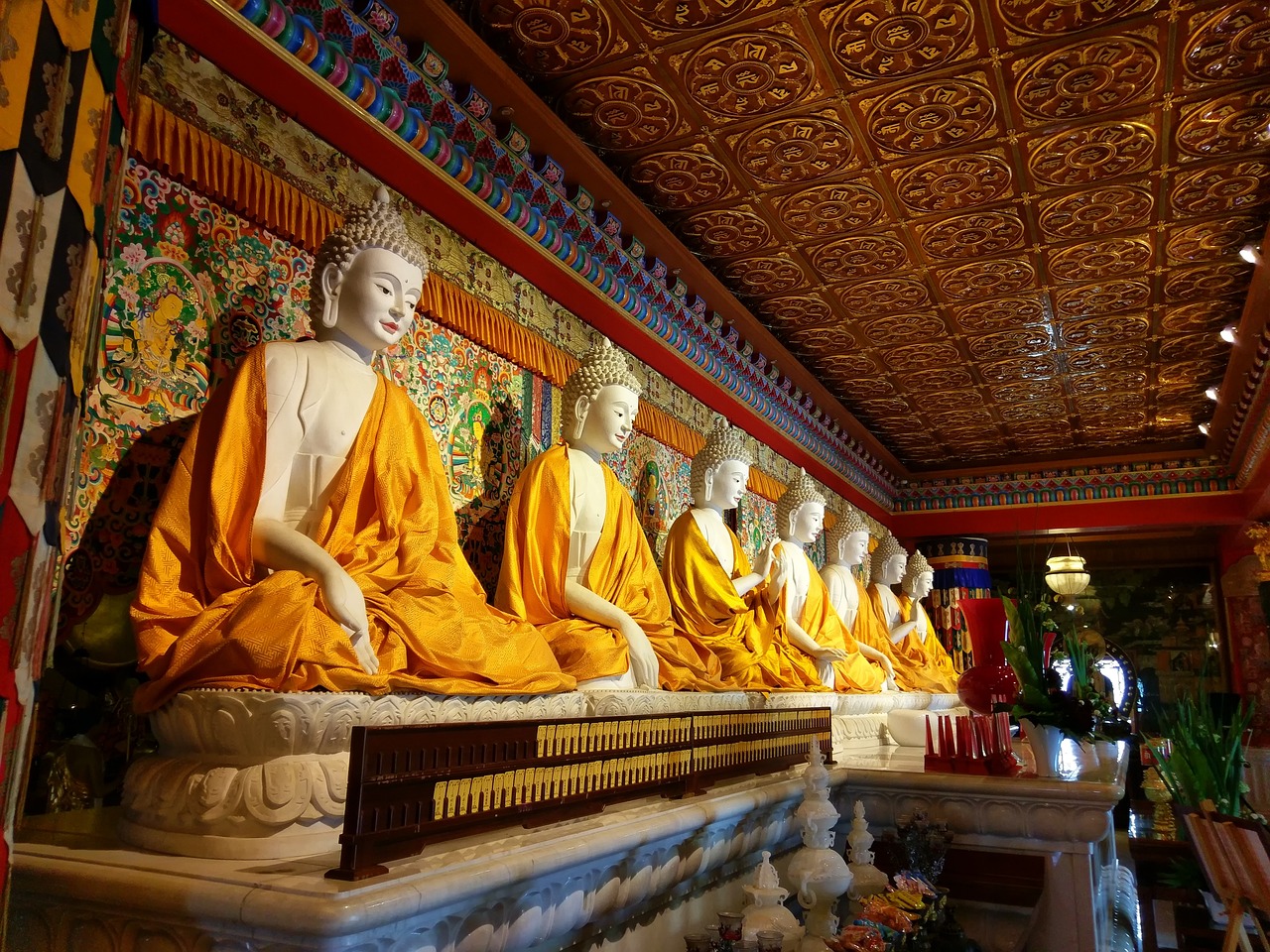
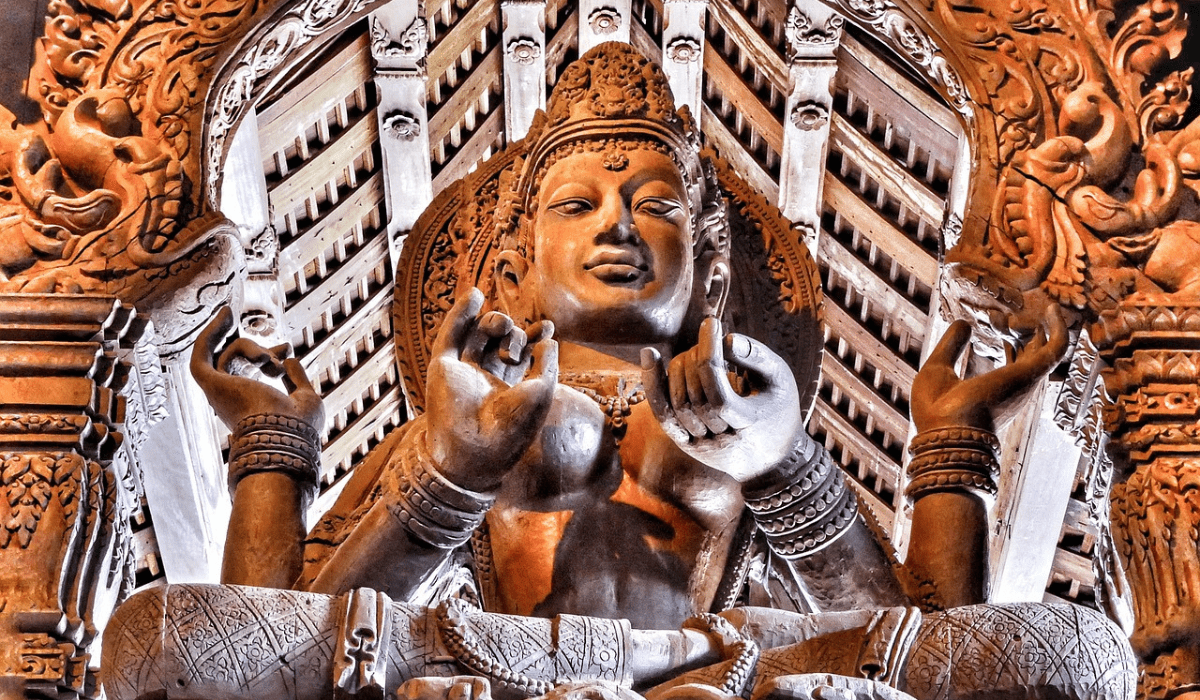
One thought on “Umandawa: A Spiritual Oasis in Sri Lanka”
Comments are closed.